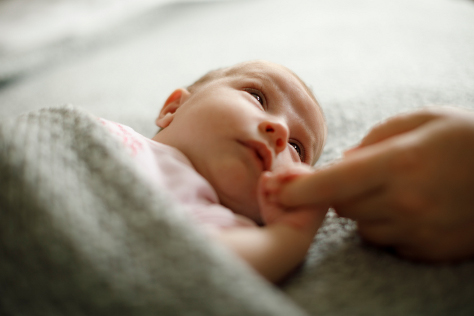A virus causing hearing loss is being screened for in a new scheme
Newborns are being offered screening for CMV

It may not be a condition you are familiar with, but Cytomegalovirus (CMV) causes hearing loss in around 1,000 babies every year in the UK.
Although CMV is a common virus which most people in the UK will catch, few have heard of.
Symptoms can be mistaken for a cold, but most healthy adults will often not even realise they have been suffering from it.
More seriously, however, if a pregnant woman catches CMV, it can be passed on to her unborn baby with alarming consequences, causing miscarriage and stillbirth, profound deafness, cerebral palsy, blindness and learning difficulties. The condition, which is more common than Down’s syndrome, affects two to three babies every day in the UK and is the most common infection passed from a mother to her unborn child.
Disturbingly, mothers-to-be are always being routinely warned about the killer virus, even though it could be prevented by simple handwashing. This is because the main reason pregnant women catch CMV is from the bodily fluids that small kids are so good at spreading around. Therefore, pregnant mums should avoid sharing a toddler’s food or kissing a toddler on the mouth if they have a runny nose.
Due to the risk of permanent hearing loss and the advances in preventative treatment for babies, a team of NHS staff have been set up in the East of England to develop the first targeted screening program for CMV in their own time and unpaid.
The screening program is being led by Paediatrician Dr Tamsin Holland-Brown who said: “The problem was we were detecting CMV too late and much of the damage was already done. We have to treat CMV within one month of life as research shows this makes a difference and for some children was preventing hearing loss from deteriorating and in other cases was even reversing the hearing loss altogether.”
The screening works by taking a swab from the inside of a newborn’s mouth and in the East of England any new baby born with hearing problems will have the test. If the virus is detected they will be offered early treatment.
The hope is that if the trial screening in the East of England proves successful in treating the early signs of CMV it could pave the way for wider CMV screening in the future.